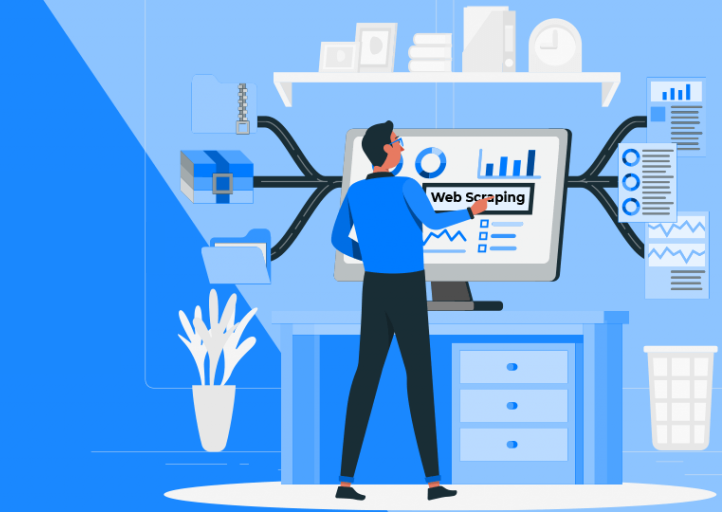Leveraging Web Scraping for E-commerce Success: A Short Guide

In today's digital landscape, browsing e-commerce platforms has become a daily ritual for many. Yet, what remains largely unknown is the staggering fact that e-commerce websites fail at an alarming rate of 90%. Surprising, isn't it, given the ubiquitous nature of these platforms?
For e-commerce owners keen on steering clear of becoming just another statistic, understanding the significance of harnessing open web data through web scraping is paramount. With an estimated 2.14 billion online shoppers in 2021 and global e-commerce sales exceeding $5.2 trillion, the stakes are undeniably high. Neglecting aspects like business strategies, product content, and pricing can swiftly lead to downfall.
This article delves into the importance of scraping e-commerce websites and utilizing open web data to gain a competitive edge. Specifically, we'll explore four ways in which data extraction and e-commerce web scraping can furnish crucial insights to enhance products, services, and overall business performance.
What is E-commerce Web Scraping?
E-commerce web scraping involves the automated retrieval of structured web data from e-commerce pages. This process is facilitated by tools and applications known as web scrapers and data extraction software. Whether you're running your e-commerce platform or utilizing services from a Shopify development company, web scraping proves immensely beneficial in optimizing conversions.
By enabling access to pertinent data, web scraping empowers informed decision-making, thereby facilitating increased product sales and effective communication through email outreach strategies.
E-commerce Data Examples:
- Product details (name, price, description, features, etc.)
- Product reviews (ratings, date, reviewer)
- Product lists (category, price, delivery information)
- Seller details
E-commerce Web Scraping Use Cases:
- Pricing Intelligence: Analyzing and comparing prices across e-commerce sites to set competitive prices and maximize sales.
- Competitor Intelligence and Brand Monitoring: Monitoring competitor pricing, inventory levels, promotions, and deals to inform strategic decisions.
- Market Research and Analysis: Understanding market trends, customer preferences, and sentiment to tailor products and services accordingly.
Outsmarting the Competition:
- Supercharge Marketing Strategies: Utilize scraped data to personalize marketing campaigns, identify optimal channels, and uncover sales opportunities.
- Increase Brand Visibility and Conversions: Employ web scraping to enhance SEO strategies, optimize product listings, and drive conversions.
- Improve Products, Services, and Pricing: Leverage customer reviews and market insights to refine offerings and enhance customer experience.
- Efficient Operations Management: Utilize scraped data to streamline supply chain management, monitor competitor pricing, and mitigate disruptions.
Automate E-commerce Data Extraction:
Transition from manual extraction methods to automated processes to minimize errors and optimize resource allocation.
Obtaining Reliable Data:
Despite challenges such as anti-bot measures and volume constraints, achieving reliable data extraction is feasible with the right expertise and infrastructure in place.
Conclusion:
In today's competitive landscape, web scraping e-commerce data is not merely an option but a necessity for businesses seeking a competitive edge. Whether undertaken in-house or outsourced to experts like DataGeeks, leveraging e-commerce data ensures speed, accuracy, and reliability in achieving business objectives. Reach out to our experts today to unlock the full potential of web scraping for your e-commerce endeavors.
